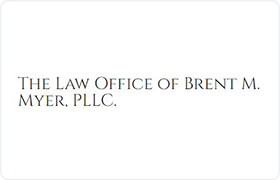Stuart Reorganization Lawyer, Florida, page 2
Sponsored Law Firm
-
 x
x

Click For More Info:
-
Law Office of Brent M. Myer, PLLC
27 SE Ocean Blvd Stuart, FL 34994» view mapBankruptcy & Debt Your Local Bankruptcy Attorney
Brent M. Myer has over 15 years of consumer bankruptcy experience and has represented both debtors and creditors in the past.
772-873-7794
Not enough matches for Stuart Reorganization lawyer.
Below are all Stuart Bankruptcy & Debt lawyers.
Annette Newman
Employee Rights, Family Law, Civil Rights, Credit & Debt
Status: In Good Standing *Status is reviewed annually. For latest information visit here Licensed: 15 Years
Audra Robin Creech
Litigation, State and Local, Employee Rights, Corporate, Credit & Debt
Status: In Good Standing *Status is reviewed annually. For latest information visit here Licensed: 9 Years
W Turnbull
Civil Rights, Bankruptcy, Construction, Trusts, Divorce
Status: In Good Standing *Status is reviewed annually. For latest information visit here
Scott W Turnbull
Contract, Credit & Debt, Civil Rights, Trusts
Status: In Good Standing *Status is reviewed annually. For latest information visit here Licensed: 18 Years
Robert John Elder
Construction, Litigation, Business & Trade, Credit & Debt
Status: In Good Standing *Status is reviewed annually. For latest information visit here
Barbara A Cook
Lawsuit & Dispute, Admiralty & Maritime, Industry Specialties, Bankruptcy
Status: In Good Standing *Status is reviewed annually. For latest information visit here Licensed: 29 Years
Michael Lewis Bowdish
Traffic, Criminal, Bankruptcy & Debt
Status: In Good Standing *Status is reviewed annually. For latest information visit here Licensed: 25 Years
Michael Joseph McNicholas
Contract, Civil Rights, Mediation, Credit & Debt
Status: In Good Standing *Status is reviewed annually. For latest information visit here
Robert Lyston Jennings
Landlord-Tenant, Fisheries & Wildlife, Credit & Debt, Bankruptcy & Debt, Bankruptcy & Debt
Status: In Good Standing *Status is reviewed annually. For latest information visit here
Erika Ashley Powers
Family Law, Criminal, Collection, Personal Injury
Status: In Good Standing *Status is reviewed annually. For latest information visit here Licensed: 9 Years
 Brent Myer Stuart, FL
Brent Myer Stuart, FL Practice AreasExpertise
Practice AreasExpertise